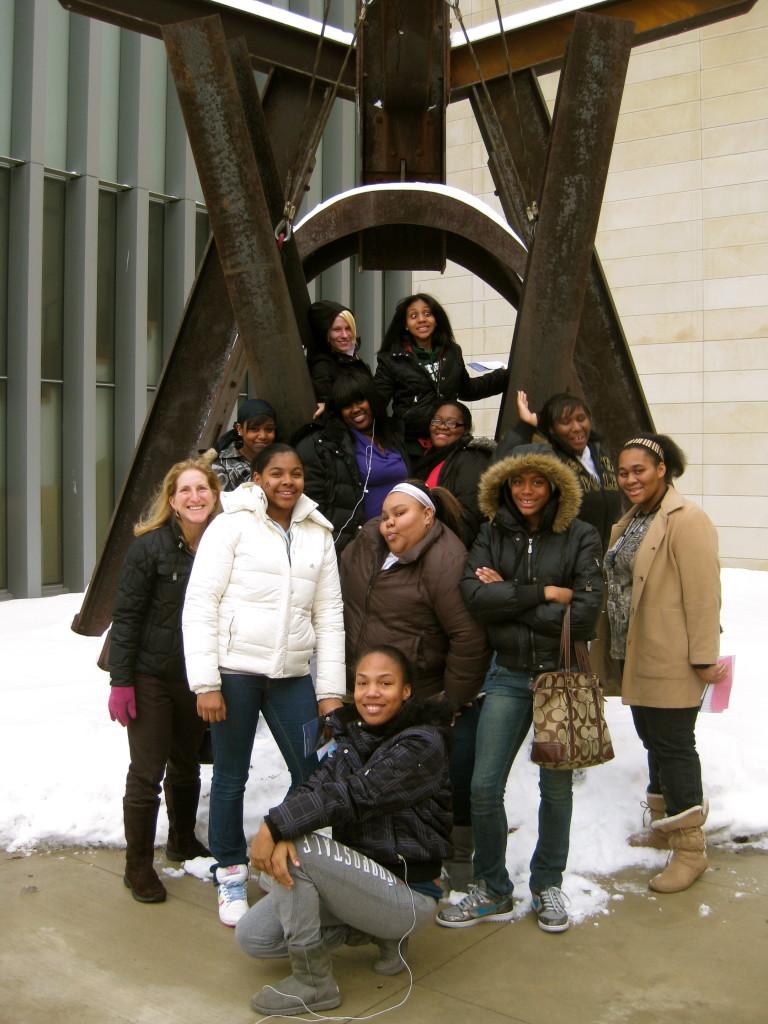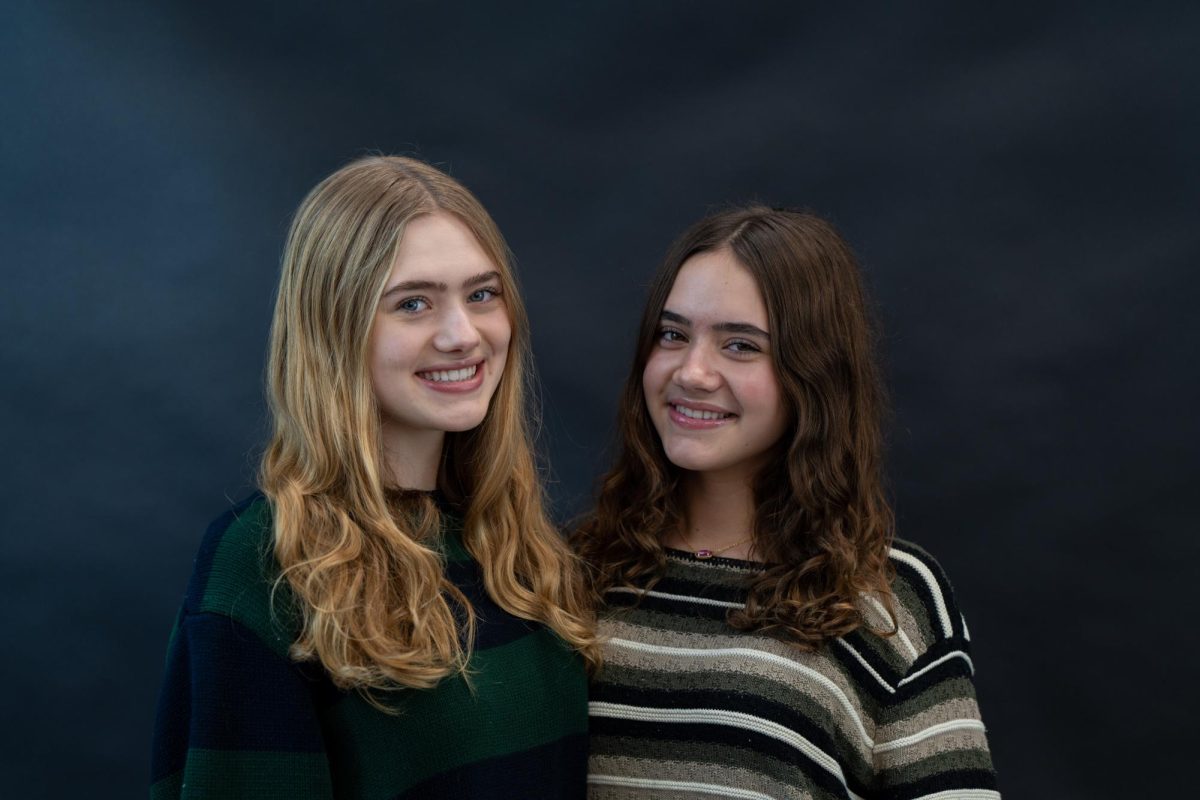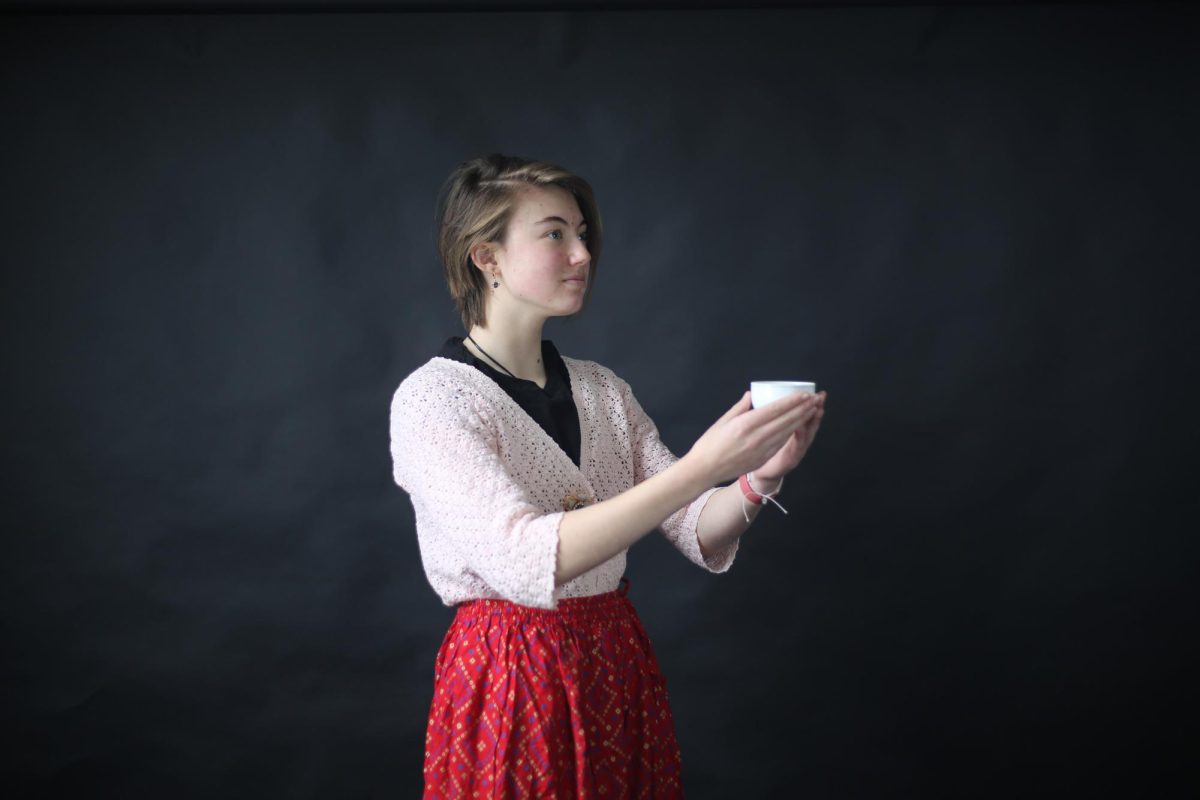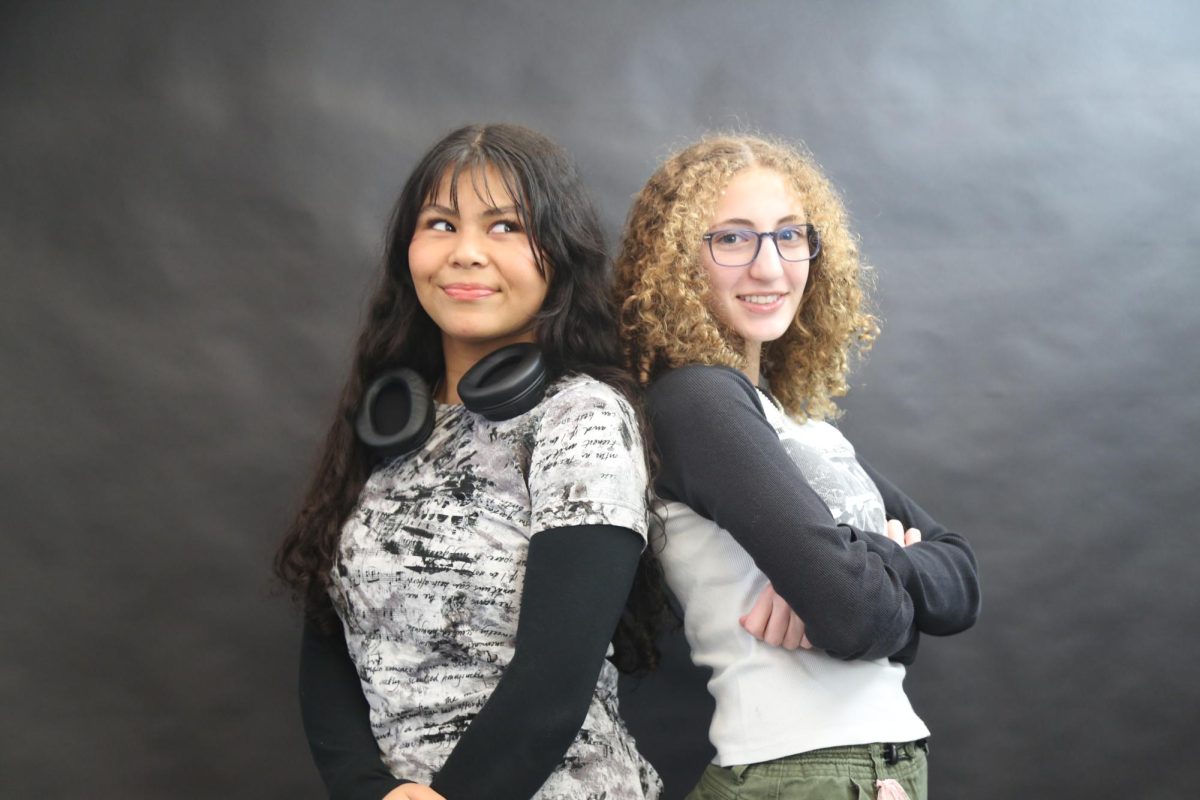Sue Schooner had no idea what she was getting herself into. She had never taken a social work class in her life. She had no experience with kids. However, that did not stop her from becoming emotionally attached. After volunteering on the board of the Women’s Center of Southeastern Michigan in 2003, she met sixteen extraordinary girls from Pine Lake cooperative housing, and they took over her life.
As she grew to know each of them and the daily challenges they faced, she knew she needed to get involved. After two years of spending all of her free time with the girls, Schooner made a drastic decision. At age 47, she retired early from her job as an automotive executive to become a full time director of the non-profit organization she founded, Girls Group.

“At first I wasn’t planning on quitting my job. For the first couple of years, I was working and spending my free time with them and I was making a lot of money, so I was just funding everything on my own. It wasn’t a big deal at the time, but it became apparent that there was so much more we could do with the organization… I figured if I incorporated it as a non-profit, it could fund itself.”
And so, Girls Group emerged. The group started having weekly Friday discussions about important topics such as sex, parents, communication and anger management.
However, it was not easy for Schooner. “I mean, in the beginning there [were] a lot of issues because first off, I really didn’t know what I was doing. I was just really making stuff up and the mothers didn’t really know who I was. So people would call me and yell at me a lot in the beginning,” she said. “I never knew what to do, like I said, I never had my own kids so every time a teenager acted like a teenager, I just panicked. Every time something went wrong, I kept thinking what a disaster it was going to be.”

Despite the drama, she persevered. “In the beginning it was teaching them good values. Then the girls never left so then it became a high school program. Then it was to encourage these girls to make it through high school and not drop out, not get kicked out for fighting, not get pregnant and not do drugs and alcohol,” she said.
The girls potential inspired Schooner to develop a new component to the group – college prep. “It became apparent that so many of these girls had so much more potential than they or their parents or the school system realized they had,” she said. “No one ever told these girls they could go to college…So if no one’s ever told you you could go to college and you don’t know anyone who’s gone to college then you just assume that you aren’t college material.”
Girls Group changed that mentality. Because of the group, sixteen girls have successfully graduated high school and currently attend colleges across the United States.
Community High School Senior, Asha Evans owes her academic success to Girls Group. “[Before Girls Group] I was still a pretty good student; I did my work, I went to class, but I was just so ready to be done and over with school that college wasn’t a big idea for me,” Evans said. “I didn’t think about going to college, or like I thought about it, but it wasn’t a big thing…but now that I go to Girls Group and we go on college tours and have different people come from different colleges, it’s made me actually want to go to college and I’m going, so that played a big part,” she said.
Evans is planning to attend Jackson Community College next year. She is looking forward to staying in the dorms and experiencing college life. Evans plans to study to become a neonatologist or a fashion designer.
Like many other Girls Group members, Evans will be one of the first in her family to attend college. The college prep component of Girls Group involves ACT prep and support with applications, essays, scholarships and financial aid.
Tuskegee University Sophomore, Alexia Burton is another example of Girls Group’s success. “I didn’t really think about it [college], but going to Girls Group and being around all the mentors who were in graduate school really inspired me to go to college. I [knew I] could do it too because a lot of the mentors were African American,” Burton said.
A major component of Girls Group is the mentors. They work to create a positive and encouraging atmosphere for the girls and are available 24/7 to help them in all areas of crisis.
Schooner looks for specific qualities in the mentors. “A lot of them have social work backgrounds; they’re college educated. They have to be tolerant and empathetic and flexible,” she said.
Girls Group conducts an interview process where the mentors come and meet the girls, “In Girls Group, there’s a lot of drama so you pretty much have to be able to get along with girls and moms and other mentors and be flexible. It’s not a job for everybody,” said Schooner.
The girls are allowed to choose their own mentors. “In general it’s a chemistry thing; part of what the girls like about girls group is that there’s a lot of different mentors, so the girls gravitate more to one mentor than another,” Schooner said.
Burton’s mentors played a large role in supporting her as she went through domestic violence. “The mentors are really important because in high school and middle school there is so much that girls and guys can get caught up into and everything. Sometimes you have things that go on in home and you don’t have the right support system for it; so I feel like Girls Group really helps and not just me, I think it helps all the girls,” Burton said.
Evans is also grateful for the support of her mentors. “They pretty much try to help you with anything that they can. They’re pretty involved, like if you’re going through a tough time and you need somebody to talk to, they’re there for you. If you call them and say ‘look this is my situation’, they’ll help you out as much as they can. They’re pretty involved; it’s like having a big sister,” she said.
Girls Group is comprised of 30 girls from different ethnic backgrounds. “It’s pretty much open [to whomever]; it tends to be girls who have difficult family situations because what they like about Girls Group is there is people who can understand what they’re going through and not judge them and be able to empathize with their situation,” Schooner said. “We create a support system that they wouldn’t normally have and that some people take for granted.”
Latoya Coleman, a mentor at Girls Group, is a strong role model to the girls. She first became involved with the group when she was asked by Schooner to share her experiences with teen pregnancy, domestic violence, poverty and the importance of education with the girls during a Friday discussion group.
“I was a teen mom and I wanted to beat the statistic. I didn’t want to be in poverty. I didn’t want to stay in poverty. I didn’t want my kids to not have anything. I wanted to not continue the cycle so I made sure that no matter what was going on, I was in school.”
She graduated from Eastern Michigan with a degree in social work and now uses her past experiences to relate to the girls. “I’ve been volunteering with high school kids forever… my past personal experience makes it so I can understand better what the girls are saying as opposed to if I hadn’t gone through the stuff I’ve gone through,” she said.
Education is one of the primary focuses in Girls Group. “It’s our mission to make sure that girls go to college and one of the things that we believe is that if they have the opportunity to go see different things than A, they can’t say they didn’t know and B, it opens up [options for the girls],” said Coleman.
This focus has proven to be a success.
“The first group of seniors, ten/ten of them graduated from high school and went to college and are still in college. So since this is the third year we have seniors, it’s been a total paradigm shift. Those original girls [said], ‘I’m not going to college, I don’t know anyone who went to college.’ But now it’s more like, ‘oh yeah I’m in Girls Group and people in Girls Group go to college.’ It’s a whole different mentality than it used to be,” said Schooner.
Girls Group also focuses on introducing the girls to different activities. These activities range anywhere from trips to the apple orchard and tie dying to summer camps in New York and Los Angeles The group runs on a $130,000 budget per year and is funded by individual donations and grant funding. There are five part time staff members and Schooner volunteers on a full time basis with virtually no overhead.She hopes to expand the group. “We’d like the opportunity to send even more girls to summer camp out of state… and we’d to provide more support to the college girls because from their perspective we were there constantly during high school and now were there, but not as much. They could use a lot more support than what they’re getting right now.”
The support system in Girls Group works both ways. “Now that we’ve been together for seven years, it’s become a very intimate relationship…. I mean the girls and the mothers were in my life when both of my parents died and I’ve been there with them through crisis and illnesses and all types of problems,” Schooner said.
She is grateful for the risk she took seven years ago. “I’ve seen the girls grow up into very lovely, successful, intelligent, professional women. And there were so many times when I thought, ‘Oh my god this is so hopeless’, but now I’ve just sort of seen that it’s a process. [It has] ups and downs, and if we just stick with it, it’ll eventually work.”








![During a CET rehearsal of the number “A Call to Pierre,” various members in the ensemble, including Maggie Williams, hold up titan tubes. Various people in the ensemble held titan tubes during some numbers in the show, and did basic choreography with them, using the lighting for emphasis. “[Having titan tubes] is a super cool addition to the show,” Williams said.](https://chscommunicator.com/wp-content/uploads/2024/04/67FXGPwwRSi7VlvWUvKuzOOZ2VN2lueTvbEBAWRQ-1200x963.jpg)

